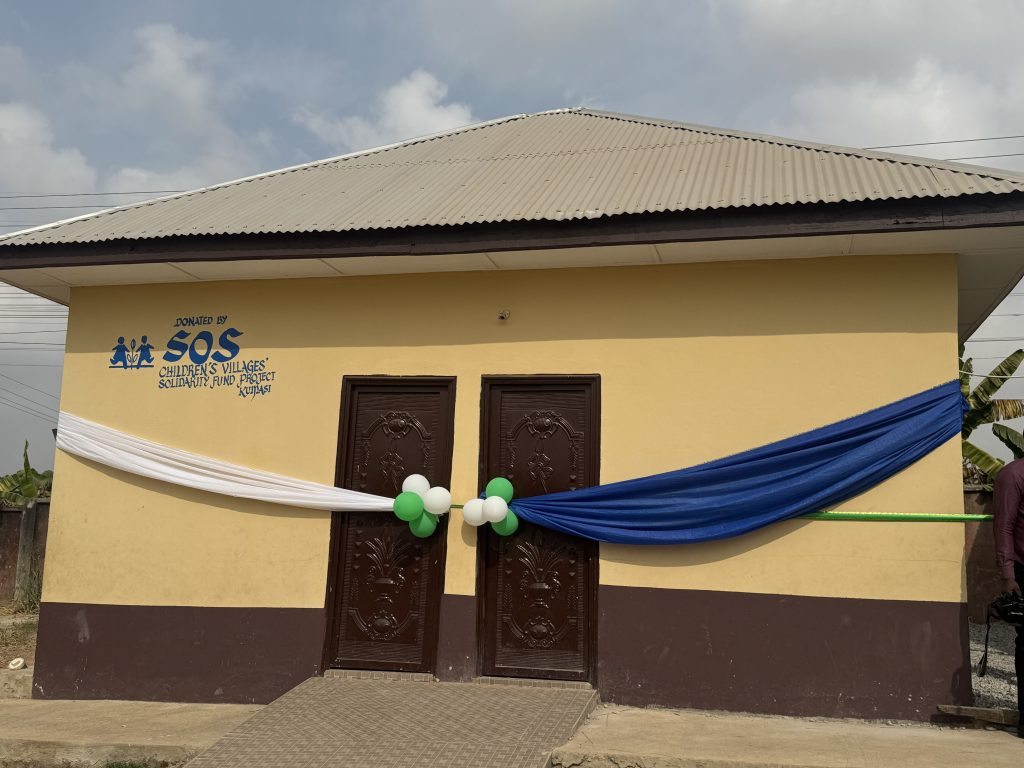By Florence Afriyie Mensah
Ejisu (Ash), Dec.13, GNA – The SOS Children’s Villages Kumasi Programme Location, has constructed and handed over three sets of modern 13-seater toilet facilities with sources of water, to some schools in the Ejisu Municipality of the Ashanti Region.
The beneficiary schools are the Fumesua Anglican Basic Schools and Ejisu Experimental Basic Schools.
The intervention is under the SOS Family Strengthening Project, which is anticipated to help improve water, sanitation, and hygiene situations to benefit some 2,500 pupils and teachers in both clusters of schools.
Mr Bernard Amoako, Programme Director, SOS Children’s Villages Kumasi Programme Location, at a ceremony to hand-over the facilities, said the facilities would bolster teaching and learning, improve school attendance as well as enhancing clean environment.
He added that, the fixing of showers in the female washrooms would help the adolescent girls during their menstrual periods to clean themselves properly after changing their sanitary towels.
“Students used to miss class hours by going far away into the bushes to ease themselves, these modern toilets will reduce the hours spent outside during school days.”

Mr Amoako said the Family Strengthening Project was supposed to support caregivers in the community to be able to take care of their children for them (children) not to get to the point where they would be brought to the SOS village.
It has therefore supported the education of children, by making it possible for them to attend schools, distributing dustbins, cleaning detergents and other materials, and constructing water and toilets for schools and communities.
He called on groups and individuals to support the SOS to build healthier communities.
Ms Benedicta Affainie, Headmistress of Fumesua Anglican Model JHS, commended the SOS Children’s Villages for intervening to boost clean surroundings in the school.
She said the school had a large enrollment and without places of convenience, students and teachers would have to go out of the school to free their bowels, which impeded teaching and learning.
GNA